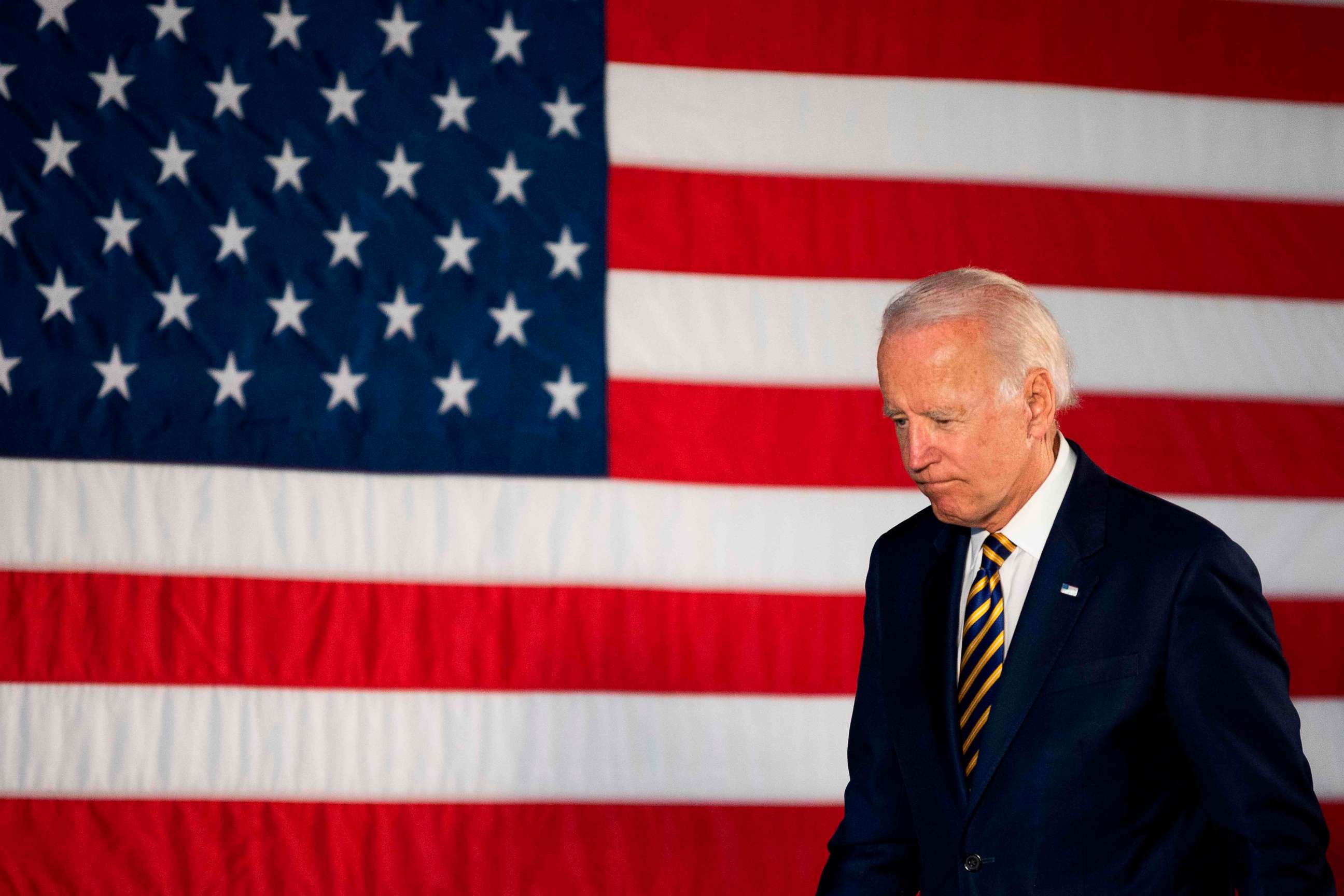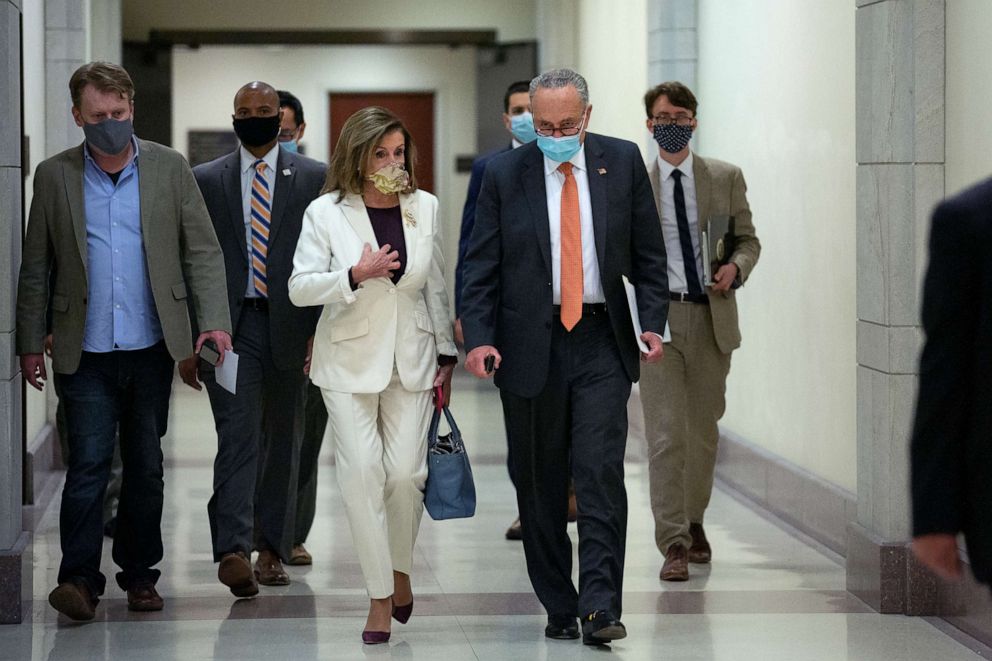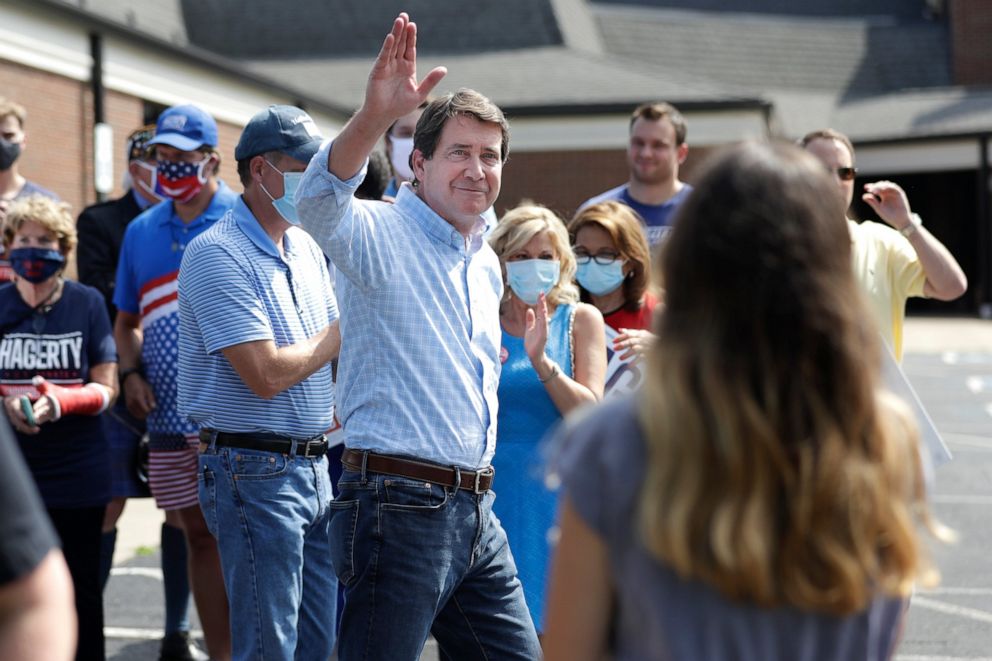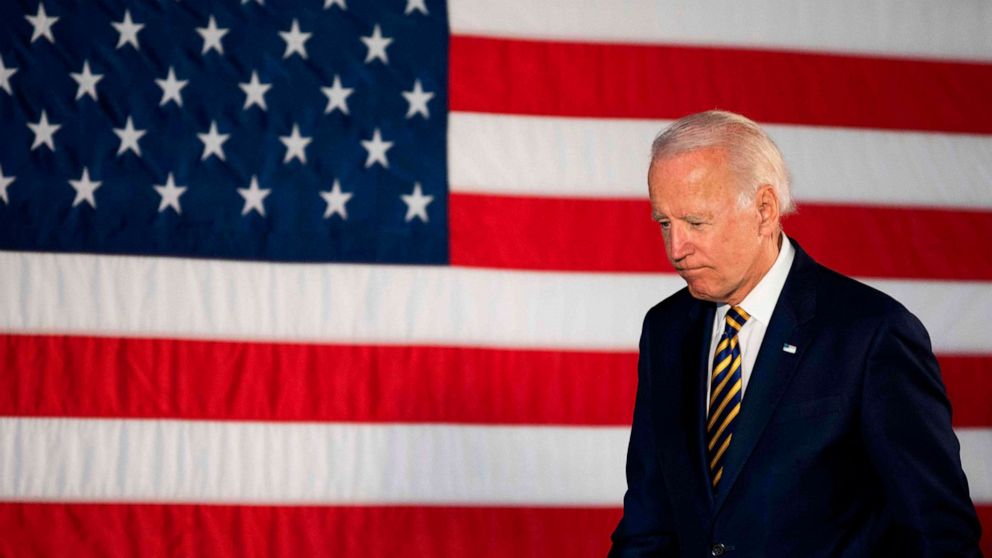The Note: Biden’s problems talking about race surface again
The TAKE with Rick Klein
Leave aside President Donald Trump's comparisons of himself to Abraham Lincoln. Forget -- at least for now -- Kanye West.
A reality that the Biden campaign has to confront -- and that Trump and his campaign are actively seeking to exploit: If former Vice President Joe Biden doesn't have a problem with race, he has a problem with how he talks about race.
One can easily spill into the other. How and why seems to become evident particularly when Biden is interviewed by people of color about questions of race -- settings where he would most likely be watching his words most carefully.
"Unlike the African American community, with notable exceptions, the Latino community is an incredibly diverse community with incredibly diverse attitudes about different things," Biden said in an interview for the National Association of Black Journalists and National Association of Hispanic Journalists virtual convention.

His effort at cleaning the comments Thursday continued to suggest that Blacks aren't "from anywhere," while again comparing the relative diversity among Latinos and Blacks. He concluded the day with a tweet thread recognizing "the diversity of thought, background and sentiment within the African American community."
It's easy to fit such comments into a narrative of Biden comments that go back decades -- and with enough recent examples to give it particular resonance. Yet while Biden is known for verbal gaffes, this is less an example of garbled words than outdated if not patronizing attitudes.
Running against Trump and his long record of racist comments and tweets may change how any Biden missteps are perceived. Trump's gleeful taunt -- "Biden just lost the entire African-American community" -- is obviously false, and particularly rich just weeks after the "white power" tweet.
Yet this kind of comment at this time in particular fuels dual concerns among Democrats: His ability to withstand general-election scrutiny and his ability to convince voters of color that he is listening and learning.
Biden is about to send an important signal, as he hones in on his running-mate selection. But the biggest messenger will always be the man at the top of the ticket, and Biden's most formidable opponent -- when it comes to matters of race -- may be himself.
The RUNDOWN with MaryAlice Parks
It could be the last major piece of legislation Congress gets done before Election Day, and in their negotiating tactics the last few days, Democrats and Republicans have revealed much about how both parties are positioned headed into November.
Democrats have been united from the start of the deal making, with junior members of the caucus willing to stick together and line up behind party leaders and positions. Whereas, Republicans on the Hill appear more isolated -- operating as if every man is for himself.
Senate Republicans up for re-election seem near panicked by the idea of Congress potentially unable to reach a deal this week. They must feel pressure to deliver back home, while, in broad strokes, others in their party want to tow a more purist line and argue small-government values.

Nationwide, many Republicans are trying hard to run local races too and sidestep a national scene that is not in their favor. The tug of war about how closely -- or not -- to align themselves with the president has long been exhausting to many.
The two sides say they are still light-years apart. After three hours of meetings late Thursday between the administration and Democratic leaders, the talks appear on the brink of collapse, leading some Republicans to tell reporters that Trump would be justified in using his executive authority to take action, while others expressed unease at the legality of such a move.
The TIP with Kendall Karson
In another proxy war between Trump and Sen. Ted Cruz, the president once again prevailed -- reinforcing the strength of his endorsement in some of the country's reddest territory.
Bill Hagerty, the Trump-endorsed former ambassador to Japan, toppled Manny Sethi to clinch the Republican Senate nomination in the race to replace retiring Sen. Lamar Alexander. Hagerty led Sethi by double digits, with his victory not only boosting Trump's endorsement record, but also delivering a decisive answer for the Republican Party about where the energy lies. And it is not with Cruz or Sen. Rand Paul, who each backed Sethi.

The race came down to be a pitched battle over who is most true to Trumpism, but Hagerty's win in the tough primary, in a state Trump carried by 26 points in 2016, shows that ultimately Trump is the decider. Now Hagerty is set to square off in the fall against Marquita Bradshaw, an activist from Memphis, who delivered an upset in the Democratic primary after defeating James Mackler, a former Army helicopter pilot who had the backing of the national Democratic establishment since January.
This isn't the first time a campaign clash between the president and Cruz ended in Trump's favor this cycle. In Texas' 23rd Congressional District, Trump-endorsed Tony Gonzales, a former Navy cryptologist, appears to be the winner over Cruz-backed Raul Reyes, Jr., a lieutenant colonel in the U.S. Air Force.
THE PLAYLIST
ABC News' "Start Here" Podcast. Friday morning's episode features ABC News' Trish Turner, who explains what options President Donald Trump may have if Congress can't come to a deal on coronavirus relief. ABC News' Stephanie Ebbs examines how political considerations could fuel mistrust over a potential coronavirus vaccine. And, ABC News Senior Investigative reporter Aaron Katersky explains why New York's attorney general is suing the National Rifle Association. http://apple.co/2HPocUL.
WHAT YOU NEED TO KNOW THIS WEEKEND
Download the ABC News app and select "The Note" as an item of interest to receive the day's sharpest political analysis.
The Note is a daily ABC News feature that highlights the key political moments of the day ahead. Please check back Monday for the latest.




